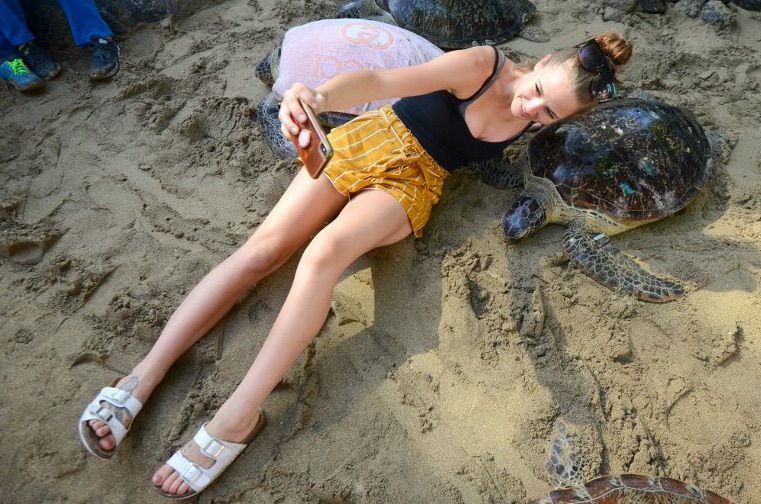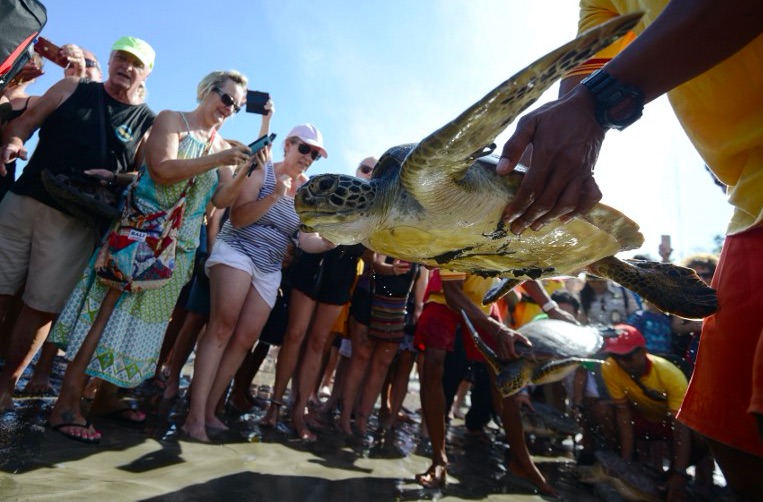Bali Natural Resources Conservation Center (BKSDA) together with police officers and military personnel released 18 green turtles and 50 hatchlings on Kuta Beach yesterday as hordes of tourists looked on.
The protected turtles were among 27 that had been rescued in two locations — Gianyar and Buleleng — earlier this month. It is suspected that the creatures would have been sold as part of the illegal turtle meat trade.

Of the 27, four were released in the Penimbangan Beach area in Buleleng, three are still being treated due to injuries sustained from being tied with ropes for long periods, and a further two are being kept at the Turtle Conservation and Education Center in Serangan as evidence.
Before being released, all of the turtles were fitted with metal tags to monitor their whereabouts. It is hoped that the tags will provide valuable information to help ensure the survival of these protected animals.
“We hope the community can help to preserve these rare animals. Through the tags, we can find out more about their life. In addition, the tags also provide the relevant contact address that fishermen or residents can use if they later find the turtle,” explained Budhy Kurniawan, the head of the BKSDA, as quoted by Nusa Bali.
Despite the fact that the trading of all turtle species, turtle products, and their eggs is now prohibited under Indonesian law, the meat is reportedly still available on the black market.
Here in Bali, where turtle meat played an important role in the religious ceremonies of yore, the BKSDA can provide a limited quota of turtles to villages for traditional rituals, but only with the express consent of the PHDI (local Hindu religious group). But the knowledge that the population of endangered green turtles is still decreasing in Indonesian waters may force some hard considerations about that practice to be made.




